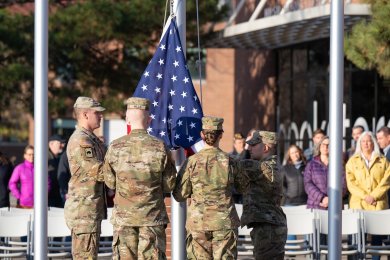Incorporating cover crops into various cropping systems will be the focus of an NDSU Extension field day set for Tuesday, Sept. 17.
Presenters will discuss and demonstrate the benefits of cover crops and how they can be used as part of an interseeding system in wheat, corn and soybeans.
Educational sessions and field visits will be at the NDSU campus research plots west of the intersection of 18th Street and 15th Avenue North in Fargo. Registration will begin at 8 a.m. and sessions will end at 3 p.m.
The field day will highlight 20 different cover crop species and how they can be incorporated into a farming operation or used for fall grazing.
In addition, participants will visit the NDSU field research and demonstration plots near Reile's Acres, North Dakota, by bus.
After the provided lunch, researchers will present results of interseeding camelina and rye into corn and sugarbeets, and the use of cover crops to manage soybean cyst nematodes.
"I have worked with interseeding camelina and rye in soybean during the past few summers," said Alan Peterson, a recently graduated master's degree student in NDSU's plant sciences department and one of the field day's speakers. "Seeding these cover crops into soybean is still a relatively new concept in North Dakota, but I expect greater adoption rates in the future."
Hans Kandel, NDSU Extension agronomist and a field day presenter, said "After soybean harvest, there is not much residue left. Seeding cover crops into soybean is one management strategy to try to increase the soil cover. Our research is trying to answer the feasibility and benefits of interseeding cover crops into standing crops."
The field day is part of the outreach effort associated with a National Institute of Food and Agriculture grant from the U.S. Department of Agriculture awarded to North Dakota Agricultural Experiment Station scientists (Award no. 2016-69004-24784, "CropSys - A novel management approach to increase productivity, resilience, and long-term sustainability of cropping systems in the northern Great Plains"). The project's director is Marisol Berti from NDSU's Department of Plant Sciences, and she will present results of the grant at the field day.
Online registration is required. For more information, visit the project's website.
As a student-focused, land grant, research institution, we serve our citizens.




